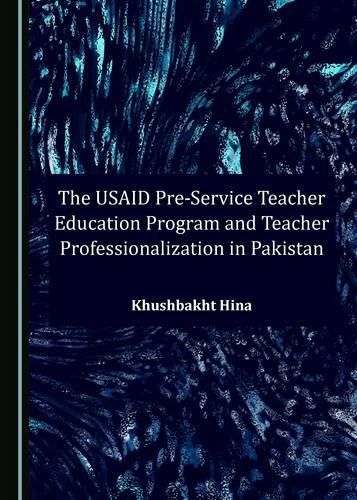Readings Newsletter
Become a Readings Member to make your shopping experience even easier.
Sign in or sign up for free!
You’re not far away from qualifying for FREE standard shipping within Australia
You’ve qualified for FREE standard shipping within Australia
The cart is loading…






Since the establishment of Pakistan in 1947, the country has announced more than 15 education policy regimes directing the improvement of education. Each policy has been ambitious in its aims and critical of past failures. A common feature of all policies, plans, programs, and schemes, however, is that all of them have failed to achieve their objectives. Even programmes using international resources have been unsuccessful in significantly changing Pakistan’s education sector. The country has been well-advised over the past decade by local, international and donor agencies regarding what is not working in its public teaching system and its provision of professional development for teachers. The issues of lack of accountability, lack of incentives, little hope of a career track, and motivation are some of the problems confronting teachers. Moreover, these issues appear to be widespread as a result of the failure of the government system itself, meaning that there is an urgent need to recognise the teaching professional in the context of teacher professionalization in Pakistan. This book evaluates such issues regarding the USAID’s Teachers Education Project, a programme attempting to introduce reforms for long-term sustainability in Pakistan’s education sector in partnership with the provincial and regional education departments.
$9.00 standard shipping within Australia
FREE standard shipping within Australia for orders over $100.00
Express & International shipping calculated at checkout
Since the establishment of Pakistan in 1947, the country has announced more than 15 education policy regimes directing the improvement of education. Each policy has been ambitious in its aims and critical of past failures. A common feature of all policies, plans, programs, and schemes, however, is that all of them have failed to achieve their objectives. Even programmes using international resources have been unsuccessful in significantly changing Pakistan’s education sector. The country has been well-advised over the past decade by local, international and donor agencies regarding what is not working in its public teaching system and its provision of professional development for teachers. The issues of lack of accountability, lack of incentives, little hope of a career track, and motivation are some of the problems confronting teachers. Moreover, these issues appear to be widespread as a result of the failure of the government system itself, meaning that there is an urgent need to recognise the teaching professional in the context of teacher professionalization in Pakistan. This book evaluates such issues regarding the USAID’s Teachers Education Project, a programme attempting to introduce reforms for long-term sustainability in Pakistan’s education sector in partnership with the provincial and regional education departments.